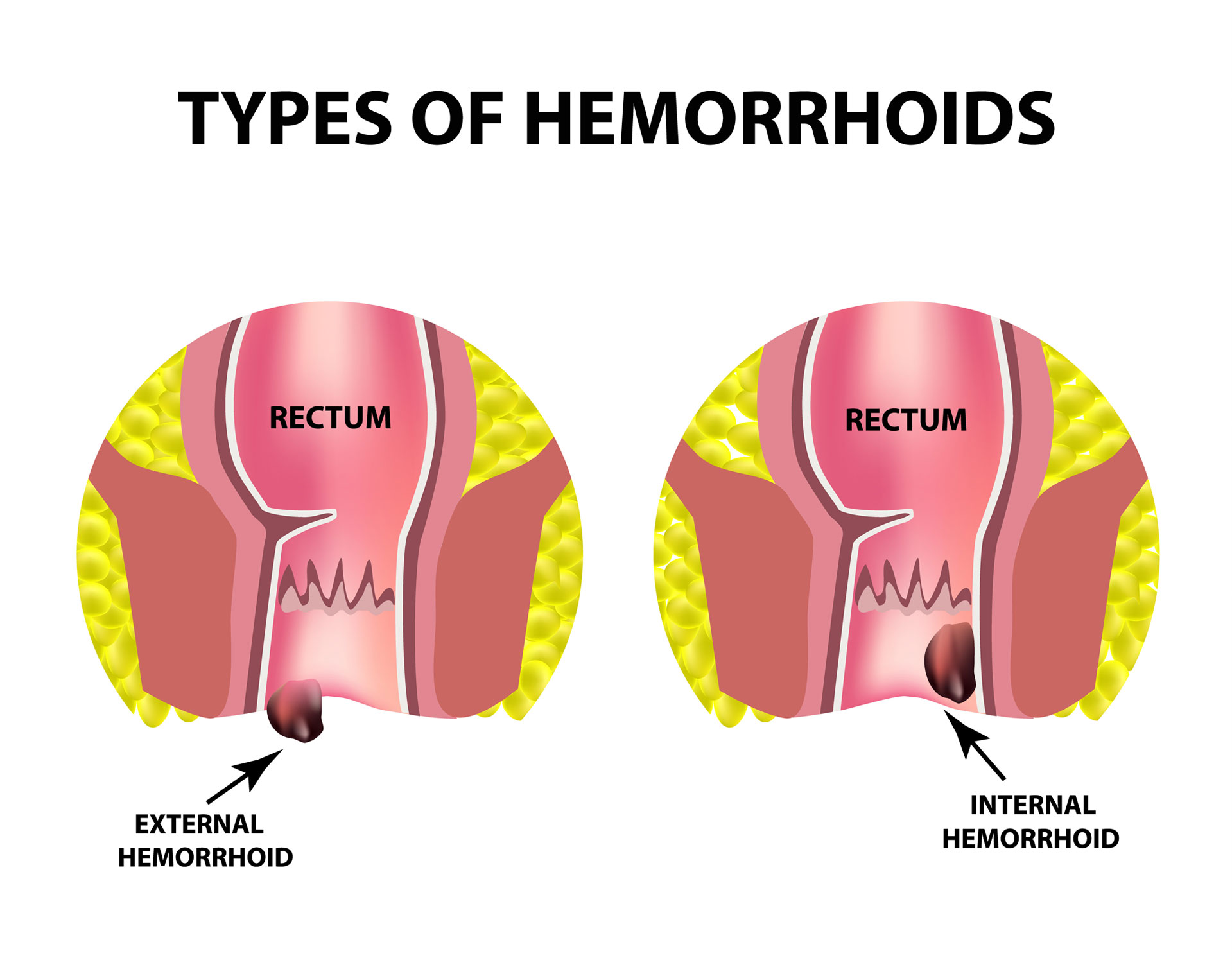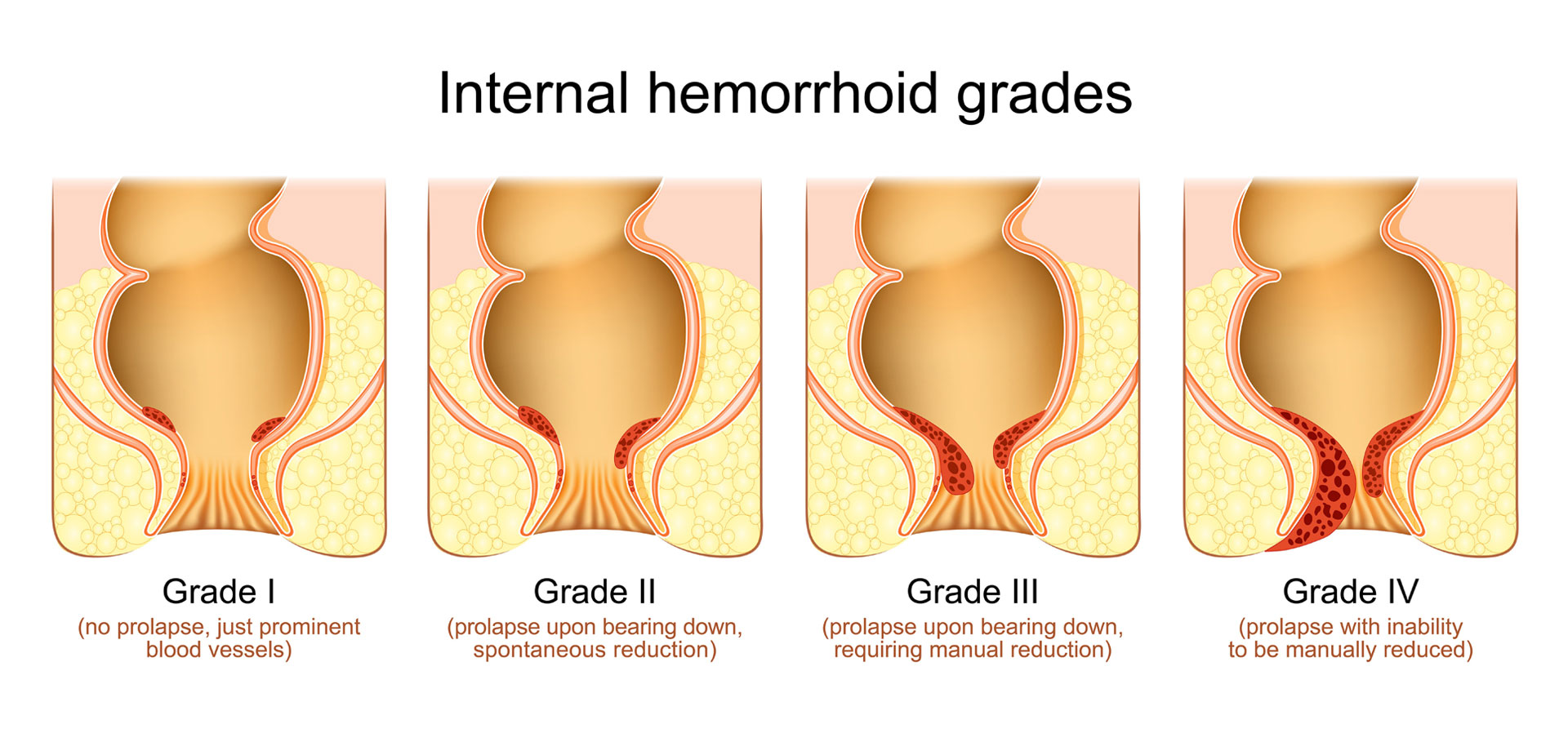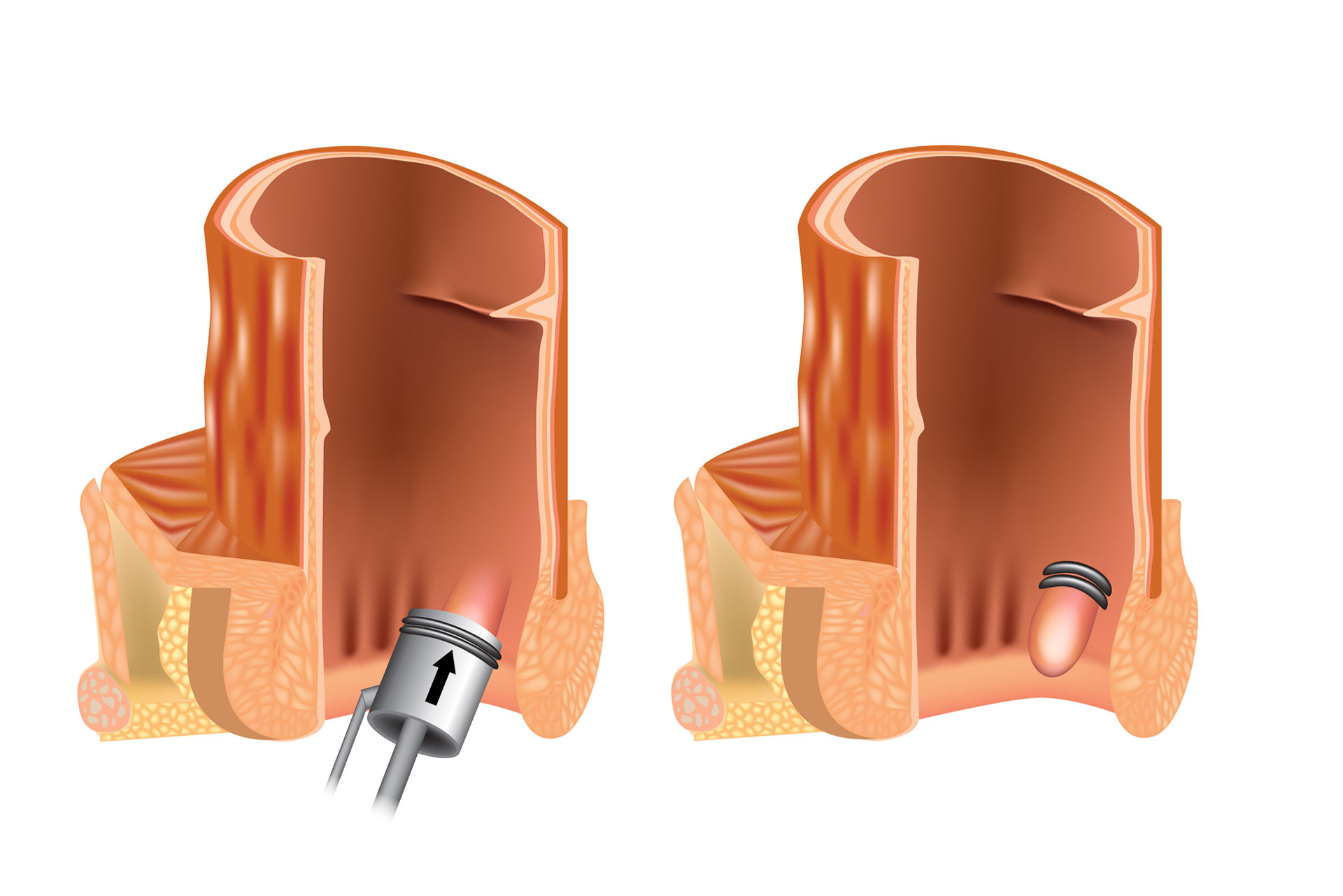Conditions And Treatments
Home / Areas Of Specialty / Hemorrhoids
Hemorrhoids
Hemorrhoids are a part of normal anatomy of human body. They are present in the anus which is the last part of human large intestine. Also known as Piles, they consist of blood vessels and connective tissue and work as cushions during bowel movements. Inflamed and enlarged hemorrhoids can stretch the blood vessels and cause Increased pressure, which can lead to thinning of the Wall of the vessels and cause rectal bleeding.
Types of Hemorrhoids
There are two types of hemorrhoids internal and external based on the location Inside or outside the anus.
Obviously, external hemorrhoids are outside the anus on the skin. Usually they do not cause any symptoms. But large or thrombosed external hemorrhoids can cause severe pain and bleeding. This condition is called thrombosed external hemorrhoids and they can appear as a lump in the anal area Which can cause significant pain, discomfort and occasional bleeding. A Colorectal surgeon can treat this condition with a small procedure in the office. It usually leads to faster recovery and healing.
However, internal hemorrhoids are inside the anal canal and can cause to significant Bleeding, protrusion, thrombosis, pain.
Symptoms And Facts
- Hemorrhoids are a very common ailment and affect a significant percentage of population. Majority of the People Suffer for a long time before seeking treatment.
- Few common causes are constipation, diarrhea, chronic straining, pregnancy, spending a significant time sitting on the toilet and occasionally can have some hereditary factors involved.
- They can present in different way and can cause pain, bleeding, protrusion, swelling, difficulty with the bowel movements, itching or discomfort.


How to get rid of hemorrhoids ?
Non-Surgical Treatment
Majority of the piles do not need any surgical treatment. The conservative hemorrhoid treatment include
1. Eating high-fiber diet and recommendation is usually 25-35 gms a day.
2. Avoid Straining down during bowel movements and spending least amount of time during the bowel movements and avoid any reading activities while sitting during bowel movements.
3. Drinking more water on a daily basis and avoid constipation.
Surgical Treatment of Hemorrhoids
Thrombosed External Hemorrhoid (Perianal Venous Thrombosis)
A Colorectal surgeon can treat this condition with a simple excision procedure in the office and symptoms can be easily relieved.
Rubber Band Ligation
This method of hemorrhoid treatment works very well on the internal hemorrhoids especially for grade 2 to grade 3 Hemorrhoids. It is a very quick procedure in the office setting does not require any anesthesia. Your surgeon will place the rubber band at the neck of the hemorrhoid and as a result, it cuts the blood supply. Certainly, they fall off along with the band in a few days after the procedure. This procedure is usually a painless procedure in majority of the patients but may cause minor discomfort and mild bleeding.
Another key point, your colorectal surgeon may repeat this procedure two to three times to be effective and shrink the hemorrhoids. We certainly perform this procedure in the office and most patients can go to the routine activities after the procedure. Rarely patients can have severe bleeding or pain and infection in which case you may need a surgical intervention.
Injections and Infrared Coagulation
Besides above less invasive procedures, Injections and Infrared coagulation or suture ligation are another less invasive methods to treat hemorrhoids.
Excisional Hemorrhoidectomy
You may need this procedure if the hemorrhoids are enlarged, causing persistent bleeding and failure of conservative management or hemorrhoid banding procedure. But there are other reasons when you may need this procedure, and one common reason is grade 4 prolapsed hemorrhoids causing pain and bleeding. However, there are different ways to perform hemorrhoidectomy which can be use of stapler, use of laser, use a scalpel or a surgical knife, other ligation devices. In our practice we perform this procedure with the Excision and subsequent suturing of the hemorrhoids. Also remember, since hemorrhoidectomy is a more invasive procedure, you may have pain and restriction of activities for few days. Please discuss with your colorectal surgeon regarding the details of the procedure before making any decision.
What should I change in my diet and lifestyle to prevent and treat hemorrhoids?
Hemorrhoids are swollen veins in your anus and lower rectum that can cause pain, itching, bleeding and discomfort. They can be caused by various factors, such as straining during bowel movements, sitting for long periods of time on the toilet, having chronic diarrhea or constipation, higherweight, being pregnant, having anal intercourse, eating a low-fiber diet or lifting heavy objects.
Above all, to prevent or treat hemorrhoids, it is recommended that you eat more foods that are high in fiber, such as fruits, vegetables, grains, beans, nuts and seeds. Fiber can help soften your stools and make them easier to pass, reducing the pressure on your hemorrhoids. Fiber can also help reduce inflammation and bleeding. Some examples of fiber-rich foods are:
- High-fiber bran cereal
- Shredded wheat cereal
- Pears
- Apples
- Raspberries
- Prunes
- Green peas
- Collard greens
- Sweet potatoes
- Potatoes with skin
- Winter squash
- Navy beans
- Pinto beans
- Kidney beans
You should also drink plenty of water and other liquids to keep yourself hydrated and have a good bowel movement.
On the contrary, you should limit food low in fiber like cheese, dairy foods, any kind of meat, alcohol, caffeine and refined food. Finally, eating a healthy diet for hemorrhoids can help you relieve your symptoms and improve your quality of life.
What is a colon and Rectal Surgeon? Is Dr Singh a Board-certified Colorectal surgeon? and where does he perform his procedures.
Colon and rectal surgeons are experts in the surgical and non-surgical treatment of diseases of the colon, rectum, and anus. They have completed advanced surgical training in the treatment of these diseases, as well as full general surgical training. They are well versed in the treatment of both benign and malignant diseases of the colon, rectum, and anus and are able to perform routine screening examinations and surgically treat conditions as and if needed. Dr Singh is a double board certified in Colon and Rectal Surgery and General surgery. His practice is located in Phoenix, Glendale and Scottsdale, AZ.
For more detailed information on the Hemorrhoids and Management please click here :
Hemorrhoids: Expanded Version | ASCRS (fascrs.org)
Rubber band ligation of hemorrhoid – Dr Neeraj Singh (colorectaldoc.com)
Thrombosed Hemorrhoid – Dr Neeraj Singh (colorectaldoc.com)
Home – Colon & Rectal Care Center of Phoenix (colorectaldoc.com)


